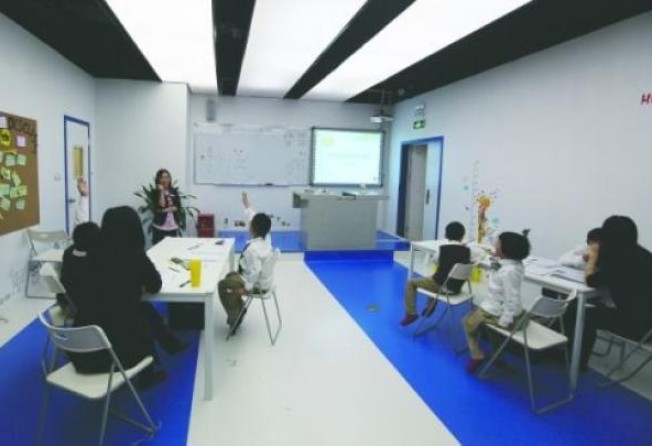Rich Chinese send children as young as seven on 'mini MBA' courses

Some rich families in Chengdu are sending young children to special training programmes so they can learn how to manage and understand money, Xinhua reported on Tuesday.
The courses are being dubbed “MBA programmes for children” - a reference to Master of Business Administration (MBA) programmes - because of the young age of the pupils and the high tuition fees. The courses are being offered by a financial tutorial institute in Chengdu so primary school-aged children can learn personal financial management from mainly overseas experts.
Xinhua reported that the institute had now organised its first term for pupils since it was established last August. At present, 40 pupils, aged between seven and 11, are enrolled. Most are born to millionaire or billionaire families, the report said.
These children will take the courses for three hours a week. The entire curriculum lasts two years with a tuition fee of 60,000 yuan. Institute director Fang Yuan says the courses train a child’s “financial quotient” – which is similar to intelligence quotient (IQ) and emotional quotient (EQ). Financial quotient measures a person’s ability to understand and manage money, she explains.
“Instead of telling them to save money, we teach them how to create a fortune. On advanced courses, we develop their investment awareness, so they can learn that ‘money makes money’,” Fang adds.
The four full-time lecturers on the programme are mostly former English school teachers. They all have financial quotient tutorial certificates from Britain paid for by the institute in Chengdu, Xinhua reported. The remainder of the part-time lecturers are education experts who fly out from Britain every three or four months to give lectures.
The report said the teachers mainly used “games” as a means of instruction.
In one class explaining the value of money, pupils were asked to choose valuable and invaluable things from a “treasure trove”. After most children chose jewellery and gold over cooking pans, tooth brushes and spoons, the teachers told them the day-to-day items would be more valuable on a desert island. The lesson aimed to stress the concept of “relative value” instead of “absolute value”, the report said.
In another lesson about budgeting and shopping students were asked to list what they would buy with a limited amount of money. The teacher then commented on each of their lists, telling them what was essential.
Parents of one seven-year-old girl enrolled in the course said she had learnt a lot. Her mother said that previously, the girl had no idea about budgeting, but now drew up lists every time she went shopping.
According to a survey by the Chengdu Business Daily, most parents still have a cautious attitude towards such training. Some questioned the high cost of the courses, while others were concerned children could become obsessed with money, the survey showed.
Scholar and entrepreneur Tan Lixin said the children were probably too young to learn about money. “It may not have a significant impact on them,” he added. Tan, who is chairman of an IT retail chain, said it might be better to teach rich children about philanthropy.
But Ji Daihai, deputy chairman of Talents Research Association of Sichuan, said it was particularly important for rich families to teach their children how to manage money.